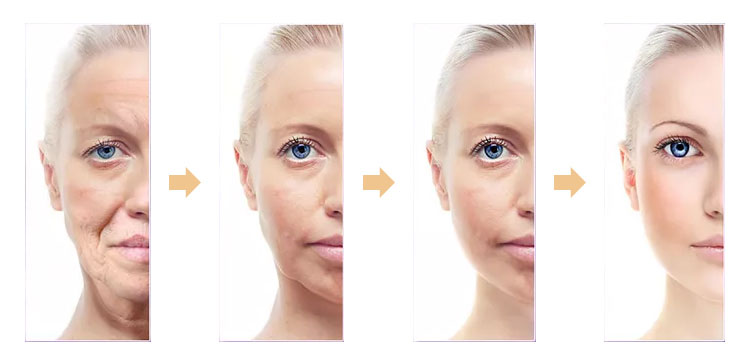You’ve probably heard of collagen for skin health, but there’s another crucial protein that doesn’t get as much attention: elastin. Think of elastin as the reason your skin can snap back after a smile or a frown. While collagen provides structure, elastin provides the bounce. But what happens when elastin breaks down? And can taking elastin peptides orally really help? Let’s dive into the science.
The “Snap Back” Protein: Why Elastin is Unique
Unlike collagen, which forms strong, fibrous ropes, elastin behaves like a rubber band. It’s a highly stable protein built to last a lifetime, designed to stretch and recoil thousands of times without losing its elasticity. This network of elastic fibers is what keeps our skin, lungs, and blood vessels supple and resilient.
The problem? Your body produces most of its elastin during fetal development and early childhood. After that, production slows down dramatically. While we constantly make new collagen, we largely rely on the same elastin fibers we’ve had since we were young. Over time, due to factors like sun exposure (photoaging), pollution, and the natural aging process, these fibers become damaged, fragmented, and lose their ability to rebound. This leads to the classic signs of aging: sagging skin, wrinkles, and a loss of firmness.
So, What Are Elastin Peptides?
This is where elastin peptides come in. They are short chains of amino acids derived from elastin protein through a process called hydrolysis—essentially breaking down the large, complex protein into smaller, more bioavailable pieces. These peptides are the key ingredient in many anti-aging supplements and skin health products.
The theory is simple: by consuming these building blocks, you might provide your body with the raw materials it needs to support and maintain its own elastic tissue. But does the science back this up?
The Journey from Gut to Skin: A Scientific Look
The biggest question is whether ingesting elastin peptides can actually influence skin health. Can they survive digestion, be absorbed, and then travel to the skin to do their job? Research suggests the answer might be yes, through a fascinating process.
Studies propose that once ingested, certain bioactive peptides from elastin are absorbed into the bloodstream. These peptides can then act as signaling molecules, a concept known as biomimicry. They don’t necessarily become new elastin directly. Instead, they “mimic” the effects of the body’s own natural elastin fragments that are released when the protein is damaged.
This mimicry triggers a targeted response called elastogenesis—the production of new elastin. Research, including a notable 2015 study published in Medicinal Food, found that women who took hydrolyzed elastin peptides for several weeks showed significant improvements in skin elasticity and hydration compared to a placebo group. Other studies have indicated that these peptides may also protect existing elastin from degradation by inhibiting enzymes that break it down.
Not a Magic Bullet: The Important Context
It’s crucial to manage expectations. Elastin peptides are not a magic potion that will reverse aging overnight. The effects are subtle and cumulative. Think of them as a supportive therapy, not a cure.
Furthermore, the health of your skin’s elastin is heavily influenced by lifestyle. No amount of supplementation can undo the damage from chronic sun exposure without sunscreen, smoking, or a poor diet. The most effective strategy is always a holistic one:
- Sun Protection: Daily broad-spectrum sunscreen is the single most effective way to prevent elastin degradation.
- Skincare: Topical retinoids, vitamin C, and other antioxidants have proven efficacy in supporting collagen and elastin health.
- Diet: A nutrient-rich diet with adequate protein, vitamins, and minerals is fundamental for producing all skin proteins.
- Hydration: Drinking plenty of water maintains skin plumpness and supports overall cellular function.
The Bottom Line
The emerging science on oral elastin peptides is promising. They appear to work not by directly building new elastic fibers, but by sending a biological signal to your body to kickstart its own repair and maintenance processes. While more research is always welcome, current evidence indicates they can be a valuable tool for improving skin elasticity and hydration from within.
If you’re considering them, look for high-quality supplements from reputable brands that specify hydrolyzed elastin or elastin peptides and have supporting clinical data. Remember, they work best as part of a consistent skincare routine and a healthy lifestyle—helping your skin’s natural bounce to, well, bounce back.
Post time: Aug-28-2025





